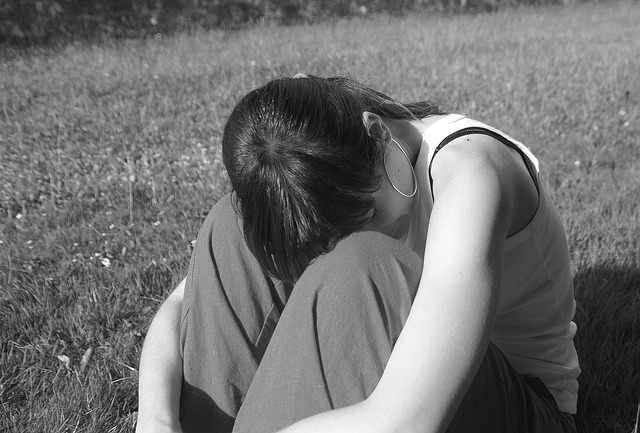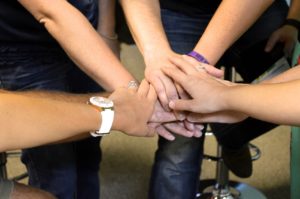- Calls to this hotline are currently being directed to Within Health, Fay or Eating Disorder Solutions
- Representatives are standing by 24/7 to help answer your questions
- All calls are confidential and HIPAA compliant
- There is no obligation or cost to call
- Eating Disorder Hope does not receive any commissions or fees dependent upon which provider you select
- Additional treatment providers are located on our directory or samhsa.gov
Binge Eating Disorder and Isolation: How to Break Out of the Cycle

Many symptoms of disordered eating create vicious cycles that can lead to a struggling individual feeling trapped. Isolation is absolutely one of these symptoms and can especially create a cycle when combined with Binge-Eating Disorder (BED) symptoms. It is important to learn how to break out of the Binge Eating Disorder and isolation cycle.
Social Factors and Binge-Eating Disorder
Social factors undoubtedly have an impact on disordered eating, and research is showing that this is also the case with BED. Interpersonal difficulties are equally related when it comes to body image disturbance and disordered eating in both males and females [1].
One study notes that “social anxiety or phobia, social comparison, poor social functioning, and social support have all been associated with eating disturbances [2].” Social isolation is also noted in this study as playing a role in disordered eating symptoms and is differentiated into two types: objective or perceived isolation.
Objective isolation is defined as “a numerical lack of social contacts while perceived isolation, or loneliness, refers to a person’s appraisal of the quality of social relationships [2].” Individuals with perceived isolation report higher levels of disordered eating behaviors [2]. Sadly, this can result in a binge eating disorder and isolation cycle.
Chicken or the Egg?
This often creates a chicken-or-the-egg scenario in which it hard to determine which came first – the isolation or the disordered eating? It has been found that individuals often use binge eating as a way to cope with the negative feelings of loneliness [2].
However, other research indicates that individuals with disordered eating habits often withdraw socially in an attempt to hide their behaviors from those that may try to intervene. The truth is, it doesn’t matter.
Regardless of which came first, both have become a problem for this individual now, pushing them into a dangerous and frustrating cycle wherein they binge because they feel isolated and they isolate themselves so that they can binge.
Looking Ahead
 This cycle can be overwhelming and frightening. However, it does not have to continue. Understanding that social isolation and feelings of loneliness are associated with disordered eating symptoms means they must be addressed in treatment.
This cycle can be overwhelming and frightening. However, it does not have to continue. Understanding that social isolation and feelings of loneliness are associated with disordered eating symptoms means they must be addressed in treatment.
Speak with your loved ones and treatment team if this is something that you struggle with, as they can include it in your journey toward recovery and support you in your attempts to increase social interactions.
Challenging yourself to interact socially does not have to be face-to-face, joining an online chat or support groups can be a comforting way to begin socializing. Many individuals with disordered eating also report distorted body image and sense-of-self, which makes it hard for them to believe themselves as worthy of attention, friendship, love, or care.
Work on letting those concepts go. You are absolutely, without a doubt, worthy of being surrounded by supportive, recovery-positive individuals that show you unconditional love and help you to give that unconditional love to yourself.
Resources:
[1] Zaitsoff, S. L., Fehon, D. C., Grilo, C. M. (2009). Social competence and social-emotional isolation and eating disorder psychopathology in female and male adolescent psychiatric inpatients. International Journal of Clinical and Health Psychology, 9:2, 219-228. [2] Mason. T. B., Heron, K. E., Braitman, A. L., Lewis, R. J. (2016). A daily diary study of perceived isolation, dietary restraint, and negative affect in binge eating. Appetite, 97, 94-100. About the Author:
About the Author:
Margot Rittenhouse, MS, PLPC, NCC is a therapist who is passionate about providing mental health support to all in need and has worked with clients with substance abuse issues, eating disorders, domestic violence victims, and offenders, and severely mentally ill youth.
As a freelance writer for Eating Disorder Hope and Addiction Hope and a mentor with MentorConnect, Margot is a passionate eating disorder advocate, committed to de-stigmatizing these illnesses while showing support for those struggling through mentoring, writing, and volunteering. Margot has a Master’s of Science in Clinical Mental Health Counseling from Johns Hopkins University.
The opinions and views of our guest contributors are shared to provide a broad perspective on eating disorders. These are not necessarily the views of Eating Disorder Hope, but an effort to offer a discussion of various issues by different concerned individuals.
We at Eating Disorder Hope understand that eating disorders result from a combination of environmental and genetic factors. If you or a loved one are suffering from an eating disorder, please know that there is hope for you, and seek immediate professional help.
Published June 24, 2019, on EatingDisorderHope.com
Reviewed & Approved on June 24, 2019, by Jacquelyn Ekern MS, LPC

The EatingDisorderHope.com editorial team comprises experienced writers, editors, and medical reviewers specializing in eating disorders, treatment, and mental and behavioral health.

